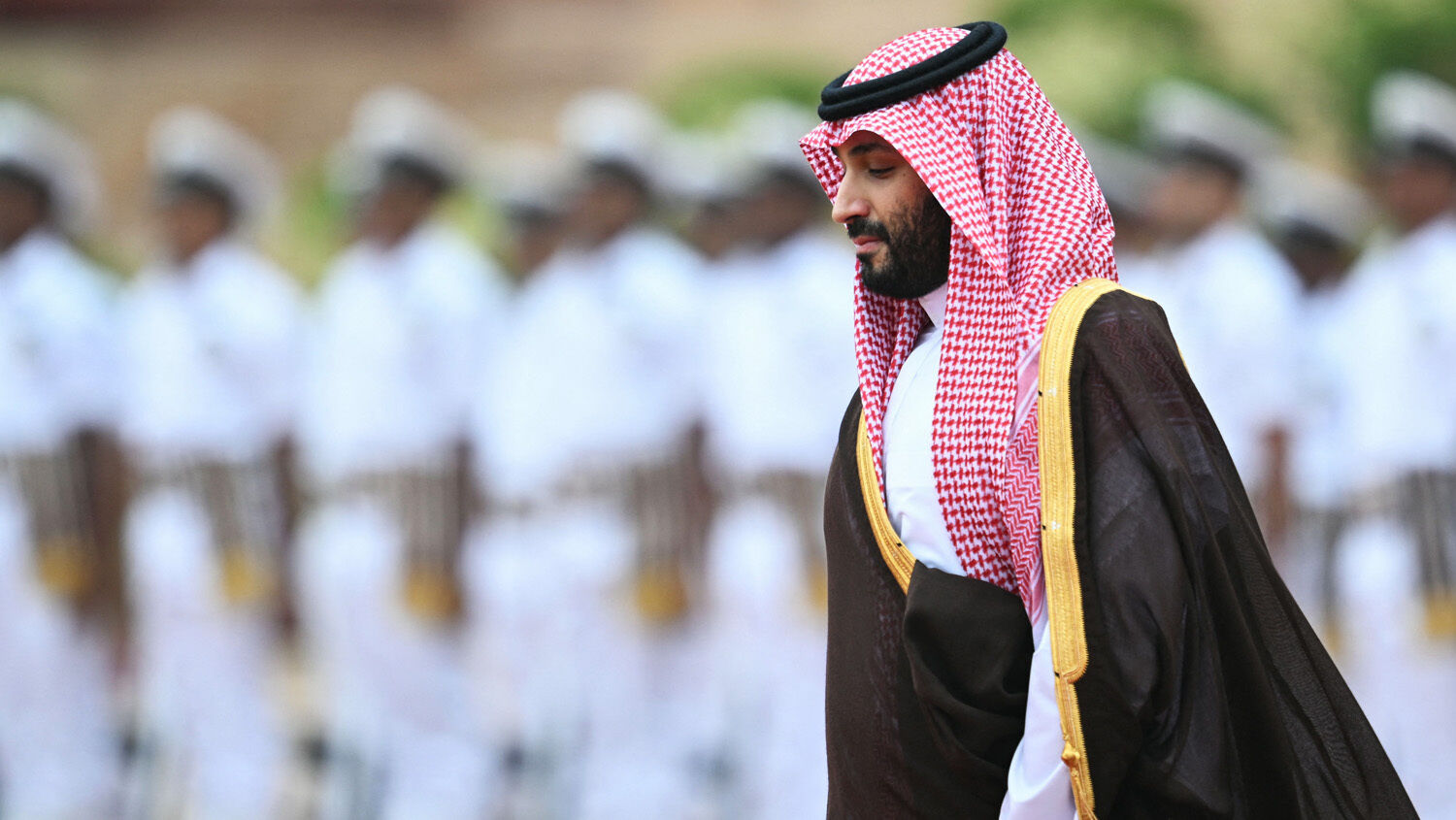
Why the Saudis Still Embrace the Jews
Some commentators predicted Israel’s ground invasion of Gaza would kill the Arab-Israeli normalization process. Now that Israel is waging “a genocidal killing spree against an innocent minority” (a demonstrably false claim), the so-called Abraham Accords appeared dead. But not so for one major player: Saudi Arabia.
Even after Israel’s ground invasion, Saudi Crown Prince Mohammed bin Salman still pledges to recognize Israel.
Saudi Ambassador to the United Kingdom Prince Khalid bin Bandar told bbc on January 9 that Israel and Saudi Arabia were on the cusp of forming a normalization deal before October 7. “[The deal] was close, there is no question,” he said. “For us, the final end point definitely included nothing less than an independent state of Palestine. So while we still—going forward after October 7—believe in normalization, it does not come at the cost of the Palestinian people.”
“We were close to normalization, therefore close to a Palestinian state,” he said. “One doesn’t come without the other. The sequencing, how it is managed, that is what was being discussed.”
In other words, nothing has changed with the negotiating framework. To save face, some of the packaging of the deal may change; the Saudis can’t look like they are completely abandoning the Palestinians. But the big picture of normalization seems sorted out.
Per details released before October 7, the United States is mediating the agreement. U.S. Secretary of State Antony Blinken, who visited Tel Aviv on January 9, told Israeli Prime Minister Benjamin Netanyahu that a Saudi deal was still on the table once the Gaza war concludes. And President Joe Biden has an ambitious timetable: According to a January 11 Axios article, “[T]he White House wants to try and get a Saudi-Israel normalization deal by the spring—before the presidential election campaign completely consumes Biden’s agenda.”
A normalization agreement doesn’t require Palestinian independence. Evidence suggests the U.S. was more interested in this than the Saudis were, and the Saudis were going along to keep the Americans onboard. If this is the case and the negotiating framework still stands, then Israel may offer generalities without commitment. The Gaza war may even give Israel and Saudi Arabia a good excuse to tick the Palestinian checkbox. An international administration to govern Gaza post-invasion may count as “a move toward Palestinian independence.”
Despite not having formal embassies, Israel-Saudi Arabia ties are strong. In 2022, the two nations participated in joint exercises. Crown Prince Mohammed allows Israeli flights through Saudi airspace to reach the United Arab Emirates and Bahrain, two Gulf states that do have relations with Israel. Netanyahu wants Saudi Arabia’s help to reconstruct Gaza after the war. Saudi Arabia even shot down a Houthi missile en route to Israel. The Saudis literally intervened in a war against Islamists on Israel’s behalf.
Not everything in Israel-Saudi relations has been smooth sailing since October 7. But more and more, Crown Prince Mohammed looks like somebody Netanyahu can trust. Considering how hostile Saudi Arabia was to Israel just a few decades back, this is unprecedented.
Could this overture to Riyadh be short-sighted?
Crown Prince Mohammed may be more progressive than some of his predecessors. Under him, Saudi Arabia has allowed women to drive and go outside without a headscarf. Westerners can now visit as tourists. Polling before October 7 suggested more Saudis were (relatively) supportive of Israel than Egyptians, who have had relations with Israel since the 1970s.
But altruism is not driving this push to Israel—fear of Iran is. Since Biden entered the White House in 2021, he has done everything to placate Iran. He reached an unofficial nuclear deal last year (which now appears to be off). The current turmoil in the Red Sea by Iran’s Houthi proxy—right next door to Saudi Arabia—shows how much power Iran has and how little the U.S. will do to check it. The Saudis’ major port at Jeddah is located in the Red Sea. Anything that disrupts Red Sea trade can become an existential crisis for the Saudis.
It is no coincidence that Iran activated Hamas against Israel and the Houthis against Saudi Arabia at the same time. Iran, revitalized by support from the U.S., has a message for both. To Israel, the message is: We’re coming for you. To Saudi Arabia, it is: Get out of the way.
Israel and Saudi Arabia see they are stronger together against Iran. Common interests connect them. But what happens when those interests disappear?
A passage in Psalm 83 details an international conspiracy forming “that the name of Israel may be no more in remembrance” (verse 4). The psalm lists the names of several Middle Eastern peoples involved in the plot: “The tabernacles of Edom, and the Ishmaelites; of Moab, and the Hagarenes; Gebal, and Ammon, and Amalek; the Philistines with the inhabitants of Tyre; Assur also is joined with them …” (verses 6-8).
Biblical and secular history record no such alliance, either of these particular peoples or for this particular purpose. This is an end-time prophecy. But it makes little sense unless one understands the modern identities of these peoples.
Our Trends article “Why the Trumpet Watches an Alliance Between Arab Nations and Europe” states:
Many of these ancient names refer to nations that still exist in the same territory. Moab and Ammon both refer to Jordan. The Philistines refers to displaced Palestinian Arabs. Tyre is Lebanon. Ishmaelites is the prophetic term for the Arabs of modern Saudi Arabia. Other identities, such as Assur and Edom, can be proved through other research. Edom is modern Turkey. Assur refers to Germany.
Tradition as far back as Greco-Roman times claims the Arabian Peninsula as the homeland of the Ishmaelites. Arabs today revere Ishmael (or Ismail) as a patriarch and prophet. This prophecy says that Ishmael—the Saudis—will be in an alliance to blot out Israel’s name from remembrance. Saudi Arabia may be one of Israel’s best friends in the Muslim world today, but it won’t stay that way.
